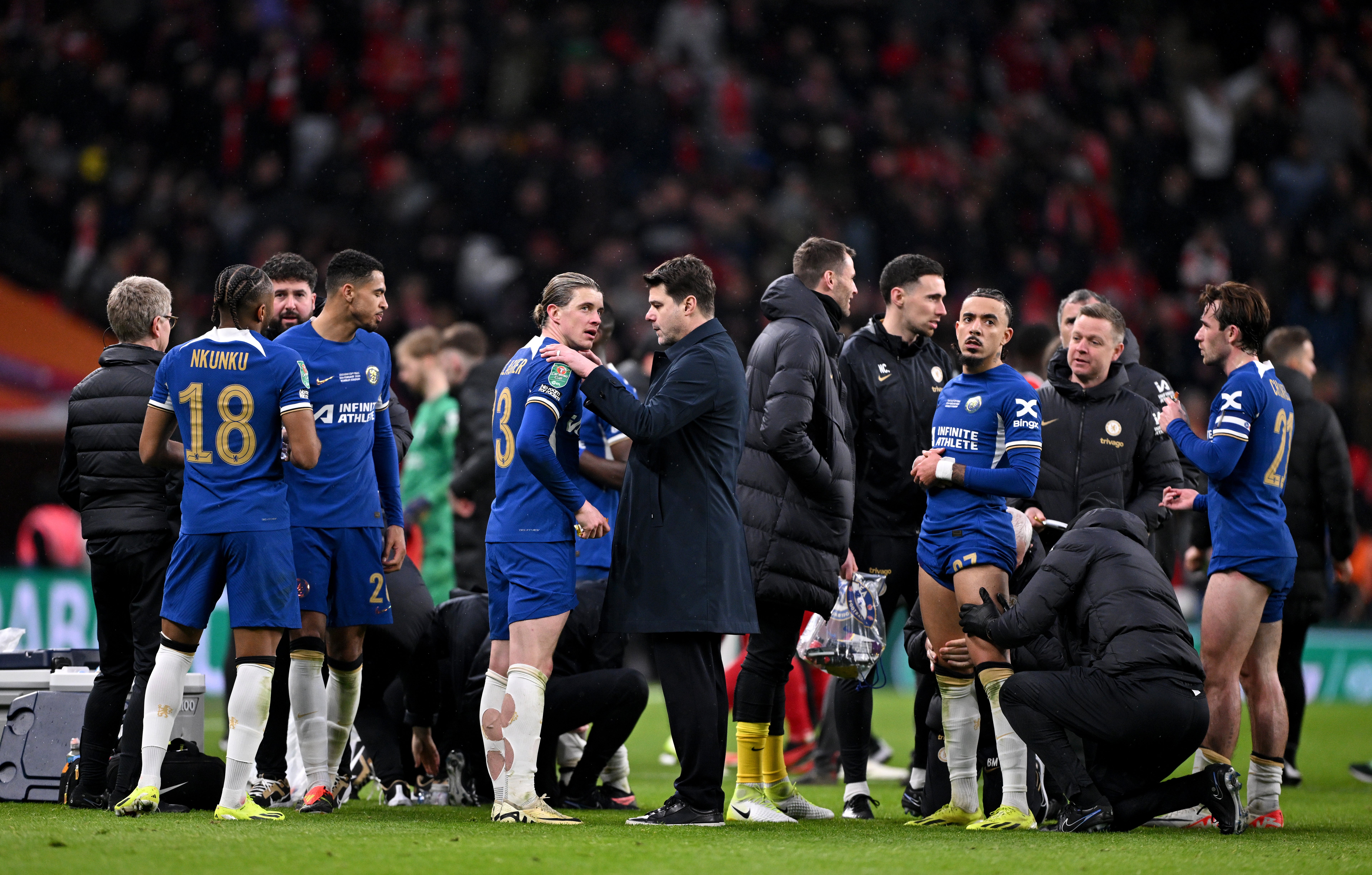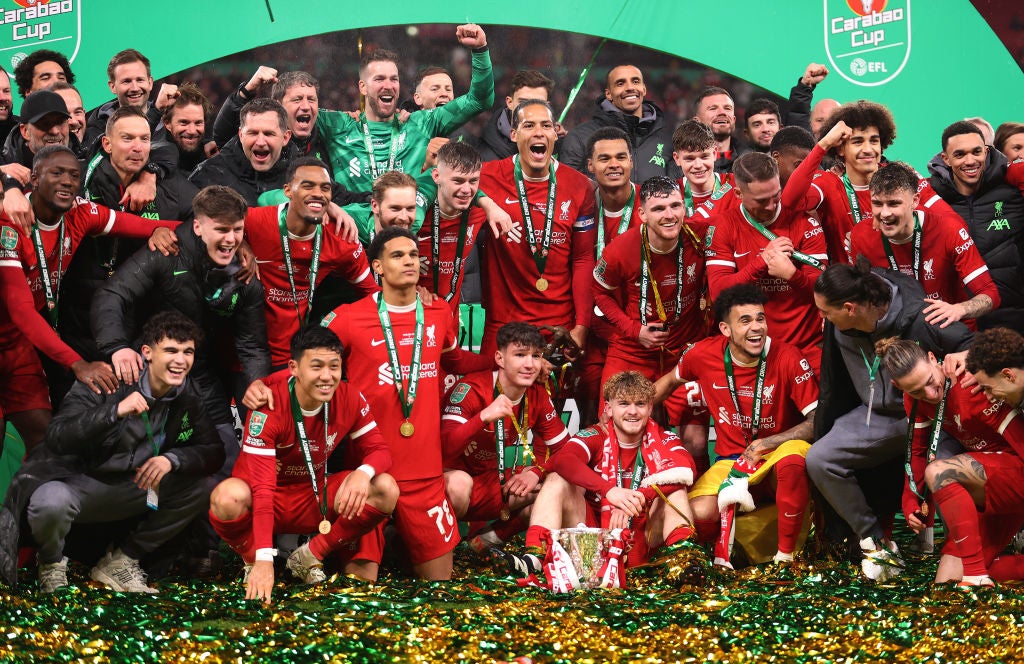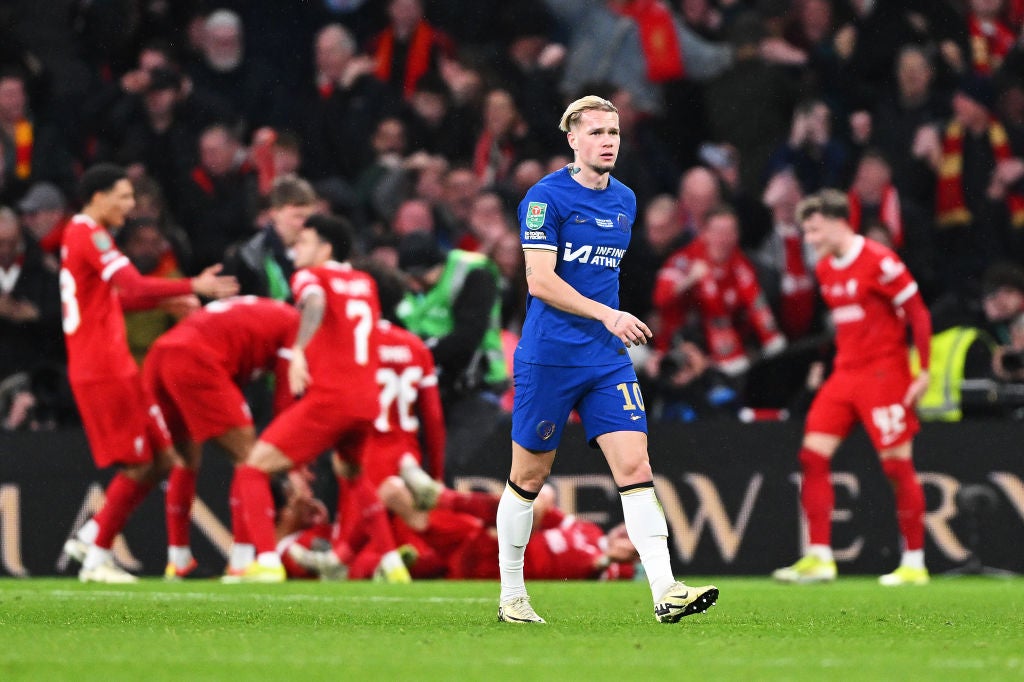Chelsea blew the Carabao Cup final - now ‘blue billion-pound bottle jobs’ tag could stick
Mauricio Pochettino’s side were given a lesson by Jurgen Klopp’s youngsters at Wembley - now they must follow Liverpool’s ‘example’, or Gary Neville’s words could haunt them
Your support helps us to tell the story
From reproductive rights to climate change to Big Tech, The Independent is on the ground when the story is developing. Whether it's investigating the financials of Elon Musk's pro-Trump PAC or producing our latest documentary, 'The A Word', which shines a light on the American women fighting for reproductive rights, we know how important it is to parse out the facts from the messaging.
At such a critical moment in US history, we need reporters on the ground. Your donation allows us to keep sending journalists to speak to both sides of the story.
The Independent is trusted by Americans across the entire political spectrum. And unlike many other quality news outlets, we choose not to lock Americans out of our reporting and analysis with paywalls. We believe quality journalism should be available to everyone, paid for by those who can afford it.
Your support makes all the difference.Just as Jurgen Klopp was learning a new phrase, Mauricio Pochettino was about to discover another. After eight years in England, the Liverpool manager chuckled at only just hearing Alan Hansen’s immortal line, ‘you can’t win anything with kids’, a statement his remarkable Carabao Cup-winning side had proved wrong, just as Manchester United and Sir Alex Ferguson did so almost 30 years ago.
Whether “blue billion-pound bottle jobs” lasts as long in football parlance remains to be seen, but at Wembley, Pochettino was faced with the realisation that Gary Neville’s damning assessment of his team could stick and hang over his players. Pochettino, downbeat and wounded, naturally defended his side and rejected Neville’s comments. “We are a young team and nothing to compare with Liverpool because they finished also with a few young players,” Pochettino responded. “It is impossible to compare and he knows that. He knows the dynamics are completely different.”
But Chelsea blew it and, deep down, Pochettino knew that too. “We have to feel this pain,” he said. A first Wembley final under the Todd Boehly era brought its most embarrassing moment yet: given a further 30 minutes of extra time, the £1bn club could not defeat a Liverpool team so unexpectedly “insane” that Klopp could only cackle at the sheer absurdity of it all.

Pochettino may have been correct in some senses: on average, the Chelsea side that began the period of extra time was slightly younger than the Liverpool team; on average, their 11 players had made 157 senior club appearances to Liverpool’s 198. But that would also be overlooking myriad factors. Chelsea’s youth had been paid for at a premium, as part of the club’s £1bn outlay in the transfer market. Liverpool’s came from the academy and Klopp’s side won the Carabao Cup with three teenagers, possessing just two first-team starts between them.
The numbers were skewed further by Liverpool having age and experience in the right areas, principally in the leadership and captaincy of Virgil van Dijk and the calmness and maturity of Wataru Endo. Chelsea’s spending has overlooked the importance of such traits, and Endo, signed last summer at 30, is a player the Blues would never have considered going for.
In that absence, the Carabao Cup final displayed the vacuum Chelsea’s outlandish spending has created, where talent is shipped in but isn’t given the environment to thrive. At Wembley, Chelsea finished normal time in the ascendancy: despite their inconsistent season, there are promising parts to this team and the performances of Cole Palmer, Malo Gusto and Conor Gallagher helped Chelsea finish on top and pushing for a winner. Had it not been for missed chances, Pochettino’s young squad would have won their first trophy together.
But in extra time Chelsea lacked the purpose and clarity to continue, while Liverpool found it in spite of extraordinary circumstances. And if Pochettino was correct, in saying Liverpool and Chelsea were “impossible to compare”, it was because the foundations of Klopp’s spirit and energy now run so deep that whoever comes in, be it Conor Bradley, Bobby Clark, James McConnell or Jayden Danns, has been nurtured and brought through a culture that comes from the top down. Liverpool were right to celebrate the Carabao Cup as a victory for their academy.


It may have been a dispiriting night for Chelsea’s own. Where does their academy fit into a project that spends £1bn in the transfer market, and looks to snap up satellite clubs across Europe, where prospects can be sent to develop elsewhere? It doesn’t. So far, there has always been another asset to claim, another Premier League rival to trump in the rush to assemble a portfolio of age profiles.
A trophy would have gone a step to legitimising a plan that has otherwise failed to convince. But Chelsea, under Boehly and Behdad Eghbali’s ownership, have revealed their hand and have invested too much to turn back now. “We are going to keep strong and believing in this project,” said Pochettino, weary as his bid to win a first title in England continued.
In some ways, belief is all Chelsea have left, although Pochettino must also hope for a certain amount of patience as well. And while it must have stung, Pochettino pointed to Klopp, Liverpool, and their early defeats in the finals of the Carabao Cup, Europa League and Champions League before winning a first trophy together.
“That is a good example,” Pochettino said. “If we want to challenge a team like Liverpool, it is not to be frustrated today because we didn’t get the trophy. It is taking the example that we need to keep believing.” And in front of them at Wembley, Chelsea were given the clearest sign yet of what they have been missing.



Join our commenting forum
Join thought-provoking conversations, follow other Independent readers and see their replies
Comments